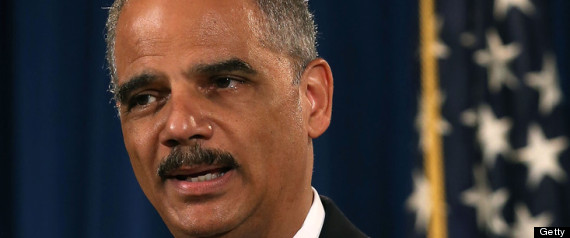Snowden told his visitors that he has no problem meeting that condition, said Tatyana Lokshina of Human Rights Watch, because he believes he has not caused any harm to the United States with his revelations.
It’s not clear the Kremlin would be in line with those semantics. “As far as we know, he has considered and continues to consider himself a human rights champion and a defender of the rule of law and democracy and that he did not plan to abandon these activities,” Peskov said at a briefing.
“He is a patriot of his country,” said Vyacheslav Nikonov, a member of parliament from the ruling United Russia party and the grandson of Vyacheslav Molotov, who was the Soviet foreign minister under Joseph Stalin.
Nikonov said he thinks Snowden will have to remain at the airport while his request — which has yet to be filed — is considered. The meeting Friday was repeatedly interrupted by flight announcements, he said, and Snowden joked, “I’m used to that by now.”
Lokshina reported that Snowden feels safe at the airport, but it has become clear he “couldn’t stay indefinitely.” On her way to the meeting, she got a phone call from a U.S. diplomat who, she said, asked her to relay to Snowden that the United States does not consider him a whistleblower — a category that has a fairly precise legal definition.
State Department spokeswoman Jen Psaki denied that human rights representatives had been asked to convey a message to Snowden. “At no point did .?.?. any official from the U.S. government ask anyone to convey a message to Mr. Snowden,” she said.
The State Department expressed “disappointment” that Russia allowed human rights activists into the airport transit zone “despite the government’s declaration of Russia’s neutrality.”
“Our concern here is that he’s been provided with this opportunity to speak in a propaganda platform .?.?. that Russia has played a role in facilitating this, that others have helped elevate it,” Psaki said.
Snowden, she said, is “not a whistleblower. He’s not a human rights activist. He’s wanted on a series of serious criminal charges brought in the Eastern District of Virginia in the United States.”
In the statement he read from at the meeting, Snowden attacked the “historically disproportionate aggression” of the United States in trying to prevent his access to asylum in Venezuela, Bolivia or Nicaragua, according to a transcript provided by WikiLeaks, the anti-secrecy organization that is helping him.
“I believe,” he said, after talking about his revelations, “in the principle declared at Nuremberg in 1945: ‘Individuals have international duties which transcend the national obligations of obedience. Therefore individual citizens have the duty to violate domestic laws to prevent crimes against peace and humanity from occurring.’?”
Snowden said he was formally accepting “all offers of support or asylum I have been extended and all others that may be offered in the future.” He cited, for example, Venezuela’s offer of asylum, but he said that “some governments” in Western Europe and North America were interfering with his “right to enjoy that asylum,” making it impossible for him to travel.
Several Latin American leaders have accused the United States of pressuring European countries to keep Snowden from reaching the region, including an incident in which Bolivian President Evo Morales’s plane was apparently prevented from crossing the airspace of some European nations on suspicion that Snowden was hiding aboard.
Snowden’s visitors gathered at 4:30 p.m. in the arrivals hall of the airport’s Terminal F, a dingy, aging relic of the Soviet era. They were mobbed by television camera crews, starved of a glimpse of Snowden for the past 19 days. Then airport officials led them on a long march past tourists just in from Thailand, right by a restaurant called Franklin’s Roll & Burger displaying a large American flag, up one escalator and down another, until they reached the gleaming Terminal E.
Down to the ground floor, into a back area nearly empty except for a woman placidly embroidering, then along a long blank pale green wall, to a door marked “Staff Only.” The airport had set up a meeting room that allowed the visitors not to cross passport control, from their side, or Snowden from his. A hot, jostling mob of journalists waited while the meeting took place. Then they pounced when the visitors re-emerged.
Kathy Lally and Natasha Abbakumova in Moscow, and Karen DeYoung in Washington contributed to this report.













